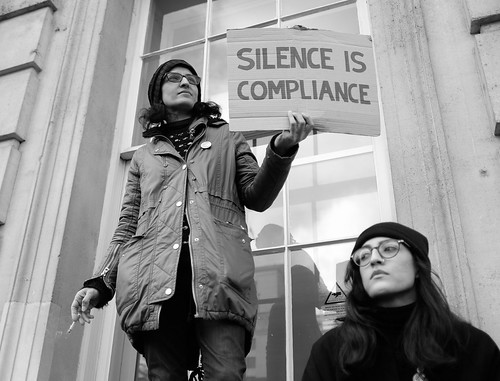From Alternet
Western media are continuing to do their part in the propaganda war on Syria.
If you wish to understand the degree to which the supposedly free western media are constructing a world of half-truths and deceptions to manipulate their audiences, keeping us uninformed and pliant, there could hardly be a better case study than their treatment of Pulitzer Prize-winning investigative journalist Seymour Hersh.
All of these highly competitive, for-profit, scoop-seeking media outlets separately took identical decisions: first to reject Hersh's latest investigative report, and then to studiously ignore it once it was published in Germany last Sunday. They have continued to maintain an absolute radio silence on his revelations, even as over the past few days they have given a great deal of attention to two stories on the very issue Hersh's investigation addresses.
These two stories, given such prominence in the western media, are clearly intended to serve as "spoilers" to his revelations, even though none of these publications has actually informed their readers of his original investigation. We are firmly in looking-glass territory.
So what did Hersh's investigation reveal? His sources in the U.S. intelligence establishment told him the official narrative that Syria's Bashar Assad had dropped deadly sarin gas on the town of Khan Sheikhoun on April 4 was incorrect. Instead, they said, a Syrian plane dropped a bomb on a meeting of jihadi fighters that triggered secondary explosions in a storage depot, releasing a toxic cloud of chemicals that killed civilians nearby.
One might assume that an alternative narrative of the events would be of great interest to the media, given that Donald Trump approved a military strike on Syria, based on the official narrative. Hersh's version suggests that Trump acted against the intelligence advice he received from his own officials, in a highly dangerous move that not only grossly violated international law but might have dragged Assad's main ally, Russia, into the fray. The Syrian arena has the potential to trigger a serious confrontation between the world's two major nuclear powers.
But in fact, the western media were supremely uninterested in the story. Hersh, once considered the journalist's journalist, went hawking his investigation around the U.S. and UK media to no avail. In the end, he could find a home for his revelations only in Germany, in the publication Welt am Sonntag.
There are a couple of possible, though unlikely, reasons all English-language publications ignored Hersh's story. Maybe they had evidence his inside intelligence was wrong. If so, they have yet to provide it. A rebuttal would require acknowledging Hersh's story, and none seems willing to do that.
Or maybe the media thought it was old news and would no longer interest their readers. It would be difficult to sustain such an interpretation, but at least it has an air of plausibility -- except for everything that has happened since Hersh published last Sunday. His story has spawned two clear "spoiler" responses from those desperate to uphold the official narrative. Hersh's revelations may have been entirely uninteresting to the western media, but strangely they have sent Washington into crisis mode.
Of course, no U.S. official has addressed Hersh's investigation directly, which might have drawn attention to it and forced western media to reference it. Instead, Washington has sought to deflect attention from Hersh's alternative narrative and shore up the official one through misdirection. That alone should raise the alarm that we are being manipulated, not informed.
The first spoiler, made in the immediate wake of Hersh's story, was statements from the Pentagon and White House warning that the U.S. had evidence Assad was planning yet another chemical attack on his people and that Washington would respond harshly if he did so.
Here is how the Guardian reported the U.S. threats:
(Note: You can view every article as one long page if you sign up as an Advocate Member, or higher).






